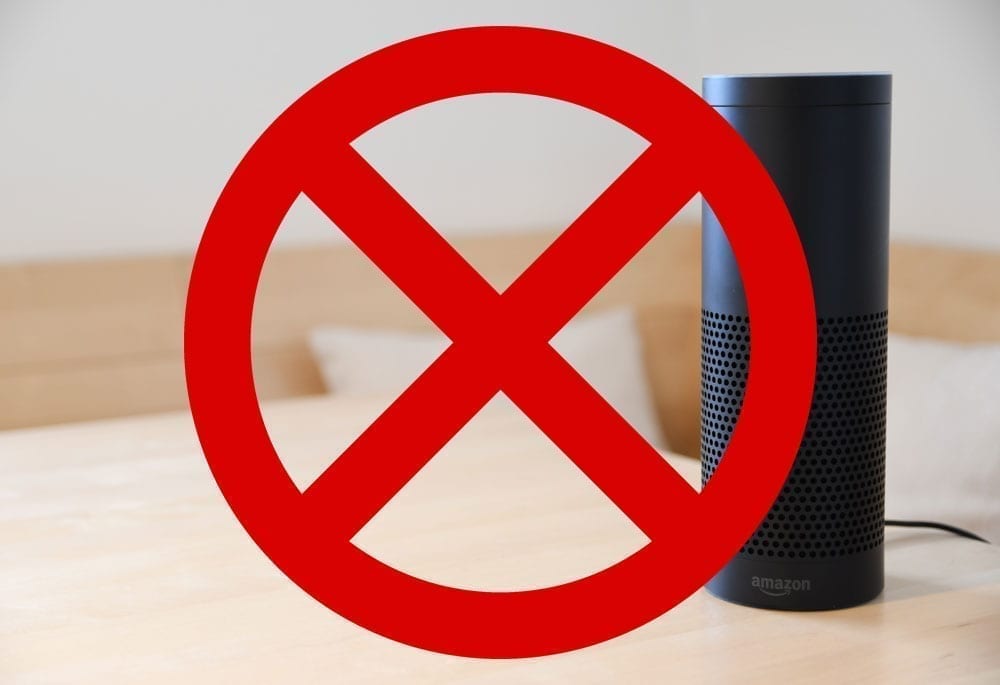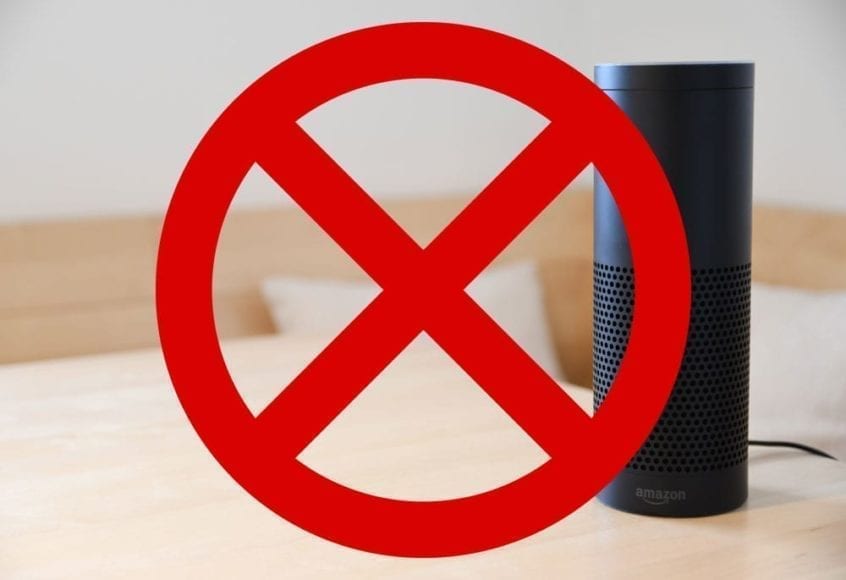As we progress further into the digital age, more of the devices we use on a day-to-day basis become interconnected. This process is often referred to as the “Internet of Things” or IoT for short. IoT affects a multitude of spaces, including infrastructure, manufacturing, agriculture, and more. But perhaps the most obvious area is home electronics. As time goes on, a fully networked home from your front door to your attic will become as ubiquitous in the 21st century as the television set was by the end of the 20th century.

At the heart of this transformation for many households are the increasingly popular smart speakers. Amazon Echo and Google Home already control a multitude of devices and activities across modern homes, primarily through voice command. These devices have their benefits, don’t get me wrong — being able to control lights, lock the front door, and manage to-do lists (all without lifting a finger) is pretty handy. When it comes to music though, I struggle with the inherent disconnect that comes with yet further detachment from the music we listen to.
Let me explain further…
Over the past few decades, changes in listening formats have revolutionalised our experience of music. First up was the arrival of CDs in the 1980’s. For the first time ever, listeners could skip tracks without needing to cue up their stylus. Skipping from one track to the next was now as simple as pressing a button, which some might argue led to the beginning of the end for albums as an artform. Listeners no longer had to sit through tracks that didn’t immediately grab their attention. Instead, they could skip straight to the singles, avoiding the subtle dynamics from one track to the next, and ultimately lose the sense of journey that comes from appreciating a collection of music from start to finish.
In many regards, this is simply human nature, and what we now often refer to as instant gratification. Put simply, we are hardwired as humans to want pleasure without delay. The catch is, achievement — or the enjoyable aspects of our lives — are typically more pleasurable when we spend time working toward them, as the following TED talk concludes. In the context of music, your favourite track (or part of a track) is considerably more satisfying when you experience the complete build up and the context around it.
The CD is just the start, what follows is a series of consecutive conveniences that lead to ever more instant gratification, and ultimately, more detached listening habits. The next major shift, of course, is digital downloads. With the arrival of Napster in 1999, consumers no longer had to even leave the house in order to purchase a record. Almost overnight, music went from being something you physically owned, to mere data on your hard drive. It seems perfectly every day now, but at the time, this represented a huge shift in consumer habits that you could argue led to the devaluation of music. Not only was music now easier to get hold of, you didn’t even physically own it – often, it was free.
Ultimately, this path leads us to modern day streaming services, such as Spotify and Deezer – by this point in the game, you don’t even own the digital file. Music transitions from something you buy, to a service you rent.
But it’s not just the detachment from ownership that de-values the music we listen to, it’s also the infinite supply. Think of it like this: If I put a popular record up for sale on Discogs, and it’s let’s say 1 of 100 copies, then I think we can all agree that record is likely to be worth a lot more than say a popular record that’s 1 of 10 million copies. It’s simple supply and demand. We’ve all gained an infinite and unlimited supply of music, which has many huge advantages, but it does make music as a product less valuable, both financially and emotionally.
The other side to oversupply is our subsequent inability to choose – often referred to as ‘analysis paralysis’. In simple terms, when we’re presented with too many options, we ultimately choose nothing. Worst still, we become passive consumers that allow devices to choose for us, which leads me neatly back to the premise of this article: Smart speakers represent our complete transformation into passive, detached consumers with ever-shortening attention spans. Music has gone from a physical product you’d spend weeks anticipating before release, to one of over 40 million tracks in the cloud, just waiting for your voice command.
Half of the time, we don’t even need to think about which song to ask for – all we need do is ask for a playlist or a genre, and Alexa or Google will take care of the rest. Heck, they’ll even line up tracks based on your previous choices. The more we allow these devices to think for us, the more passive we become, and the more music deteriorates into mere wallpaper for our increasingly frantic, technologically driven lives.
Of course, we’ve always listened passively to music through radio, but as less and less of us make time to give 100% of our attention to music, we become increasingly detached and unable to truly absorb what we’re listening to. In a similar way to how we check our phones regularly while taking a walk in the park, our ability to completely disconnect through music is increasingly stifled by technology.
I’m not trying to denigrate technology as a whole. I write this article from the perspective of someone who studied music technology, works in digital marketing, and ultimately believes in the power of the internet to spread prosperity across the globe. However, while I understand and embrace the technology we enjoy today, I really think we’ve lost something by surrendering our ownership of music as a physical product. We’ve travelled a journey from full physical ownership, to digital ownership, and ultimately rental of music through streaming services. Surrendering control of the playback completely through a device that listens to you and learns your personal taste seems to represent the final nail in the coffin for music as a valuable art form in society. Ted Gioia summarises this well over at thesmartset.com in his article explaining the importance of music ownership:
“…generations began adopting music as their cohort’s identity immediately after the rise of recordings. The 1920s were called the Jazz Age. The late 1930s became the Swing Era, and in the 1940s people started talking about the Big Band Era. The 1960s was the Age of Woodstock. That doesn’t happen anymore.”
I couldn’t agree more with the sentiment expressed by Ted in his article, and I think this really gets to the heart of the issue. There appears to be a direct correlation between physical music ownership and the development of music scenes that define an era.
When music is physically owned, the audience takes greater pride. It becomes a part of who they are — a statement to their peers about who they are, and arguably, vinyl records represented the peak of music’s capacity to influence social demographics in this way.
Fortunately, I’m not the only person who feels this way, as recent consumer market trends would appear to suggest. Physical sales of albums are once again out-selling digital downloads, and while streaming now represents 65% of the US market, physical album sales now sit comfortably in second place at 17%. This rise in physical sales is driven by the continued popularity of vinyl records, and it would appear that those who want to own a physical copy are increasingly turning to vinyl.
Vinyl records seem to represent the antidote to modern passive listening habits, offering some hope to those (like myself) who believe in the importance of ownership for the sake of music’s value in society.
I started this website in part because of my passion for music’s worth and how I saw this declining over recent decades. Streaming has its place, and ultimately had to happen given how easy digital files are to share and pirate, but what I would finally say is this:
We’ve already surrendered ownership of music, losing the great era-defining scenes that come with it. Don’t now go surrendering complete control of rented music to a talking, listening, speaker. You’re better than that.



